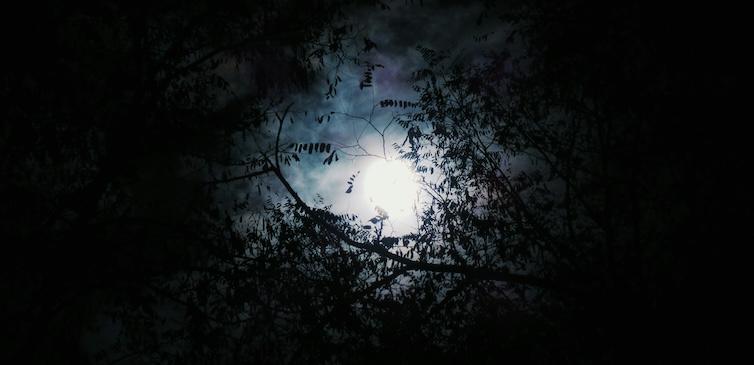Despite the declaration that the BFS is here for all of speculative fiction, a lot of the horror community can be put off by the word ‘fantasy’ – and a lot of the fantasy community can be put off by the word ‘horror’! Let’s bridge that divide and ask our dark side members for the truth…
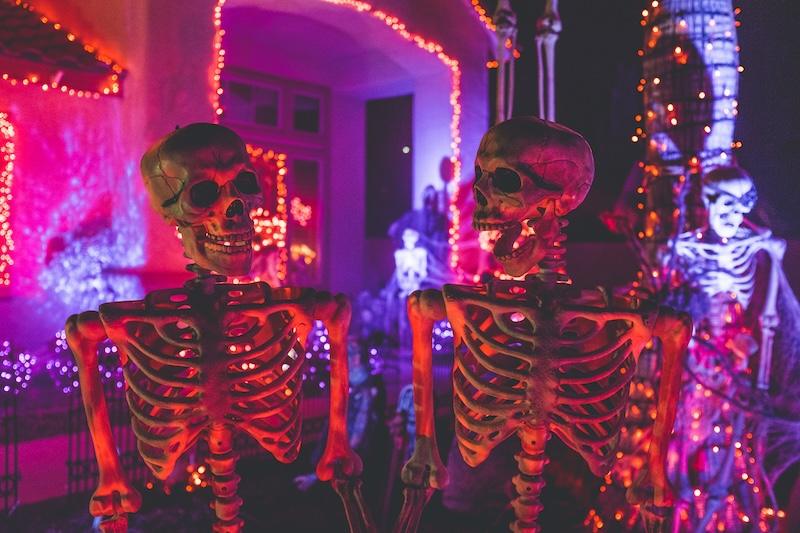
This is the British FANTASY Society, right? Why are we talking about horror?
That’s something we’ve explored a little bit over this month of darkness – including horror is a genre or actually a mood – but we thought it would be worth going straight to the horse’s (or writer’s) mouth for Samhain. Here, in their own words, are just a small representation of the writers of dark fiction that are part of this vibrant community, telling you exactly why a horror bod thrives here. Some of these (alleged) humans are pure horror writers, others delve into crime and scifi and the supernatural and more. But all of them explore this darker side of speculative fiction that even the normals like to celebrate at this time of year.
And think about it: so many staples of both genres align. Witches. Vampires. Werewolves. The darkest depths of the forest. Creatures from the deep lagoon or deepest space…
Over to you, children of the dark…
Kit Power
Follow Kit on Facebook. Current release: Millionaires Day.
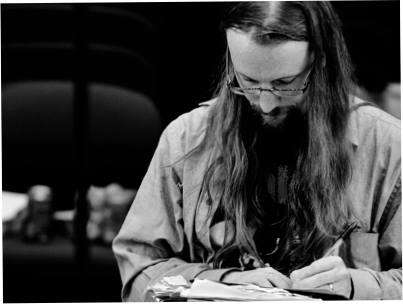
I write fiction that has variously been described as horror, dark crime, or occasionally dark Sci-Fi. So taking an aggregate, I guess I write dark genre fiction! I also write non-fiction essays and books on pop culture (movies, books, music), again leaning towards the darkness on the edge of town.
I’ve been a big fan of FCon forever (this year was my ninth attendance) and it was at least partly out of a desire to support the society year-round for the incredible benefits and opportunities I’ve gotten from those attendances down the years. As a writer in general, I get to connect with other writers! It’s a very solitary business, and the opportunities (both online and physical spaces) to talk craft, current works in progress, and just general writer chat with friends who ‘get it’ are hugely invaluable. I always come away fired up with ideas and enthusiasm.
I would absolutely recommend it to other horror writers. One of the great things about BFS and FCon is that there’s always been a rich horror vein alongside the Fantasy and Sci-Fi strands – Horror isn’t an afterthought, the way it can feel at some other big genre cons/societies. And I find exposure to the other genres thought-provoking and inspiring too; in other words, there’s a great mix of ‘comfort zone’ type activities and opportunities to expand one’s horizons. I’ve gotten writing and publishing opportunities as a direct result of FCon in particular, but far, far more importantly, I’ve made lifelong friendships that mean a huge amount to me. The great thing about the BFS is that, regardless of genre or level of career, it really does feel like we’re all on the same side; just an incredibly supportive community.
TC Parker
Visit TC’s website. Current release: Consequential.
Genre-wise, I tend towards horror, crime and any and all hybrids of the two – although I published a romcom last year, and may well write another someday, so let’s not close off any avenues
I’m also a massive Discworld fan – Sir Pterry was and still is the biggest influence on my writing, so I’m sure trace elements of Granny Weatherwax, Nanny Ogg and Sam Vimes are in a lot of what I write, too.
Tonally: it really depends on the story. I’m not wedded to any one format or style… Whatever makes the most sense for the story is what I’ll go with!
I love the BFS’ ethos – especially how inclusing and welcome it is to all comers. I’ve seen none of the genre gatekeeping you sometimes see with membership organisations… and its communication with members is refreshingly transparent.
It’s also nice to have a writing community and support network specifically geared towards the UK – the horror world especially can be quite US-centric, and the BFS provides a great counterbalance to that.

What do I get out of it? A community and a network! It’s also a great way to keep up with what others in the British horror, fantasy and dark lit worlds are up to. And I would recommend it to other horror writers for all of the reasons above. Also, selfishly: I’m very keen to see more British representation in and UK regional events for the horror/fantasy lit worlds – and the BFS is a fantastic vehicle for bringing us all together!
Stephanie Ellis
Visit Stephanie’s website. Current release: The Barricade.
I think I prefer to call my work dark fiction as opposed to horror, although in general it is the latter. My main reason for this subtlety is that it allows a greater nuance and will possibly attract readers who ‘don’t read horror’. Within this dark world, I write gothic horror, folk horror and postapocalyptic/scifi/horror mashups. There can be elements of fantasy or a more literary feel and often there is poetry.
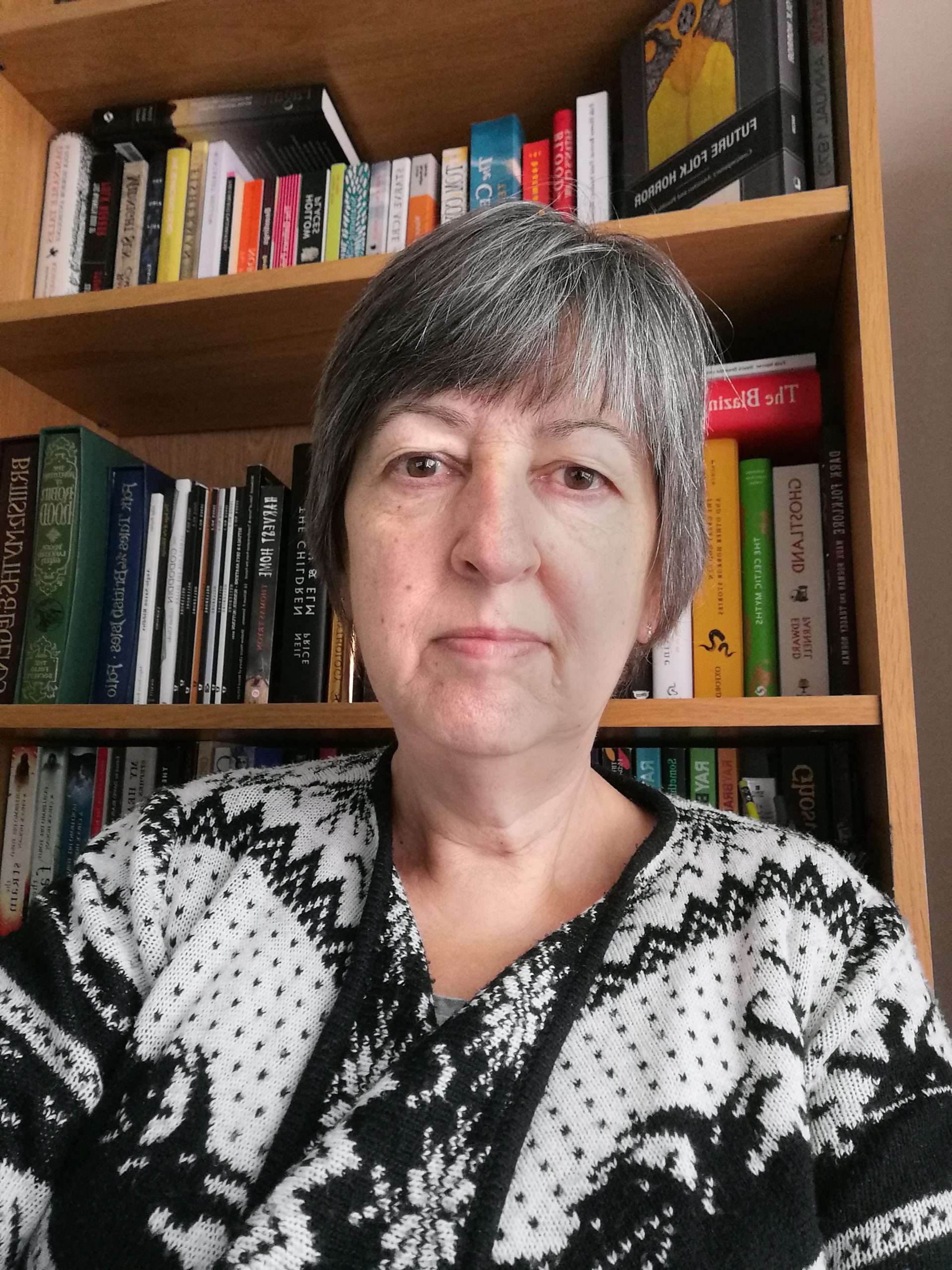
I was actually a member of the BFS a few years back. I think it was when FantasyCon was in Chester before. I attended but felt out of place. I had the same feeling when I looked at the website. It was all fantasy or scifi and I did not feel ‘part’ of it at all. Now I have rejoined, mainly because of seeing the heroic efforts made by Lauren McMenemy to promote this neglected corner of the BFS and make sure that those of us who lurk there see a home for ourselves within the organisation. It also seems as though the BFS is going through a real change, has modernised and upped its game. It feels ‘relevant’.
An additional, and important reason, was the ability to connect with writers in the UK. Previously part of the Horror Writers Association (I might go back but am undecided), I felt increasingly isolated from that community as it is very US centric. Yes, I’ve a lot of friends/contacts online but anything else is often impossible to attend. Even online, the time difference is a regular barrier. The BFS gives me the chance to network and develop real in-person relationships with people – both writers and readers – in a way the HWA can’t.
Sarah Elliott
Visit Sarah’s website. Submit an Unholy Trinity of drabbles to her at HorrorTree.com.
My fiction writing often weaves in a supernatural theme. I write flash fiction and short stories. I enjoy making things up so the spooky, magical or uncanny suits me just fine. My non- fiction writing often references some pop culture relating to the supernatural.
I joined the BFS because I knew it would be more than sprawling fantasy works. I didn’t have to be an expert in all things fantasy and have spent my whole life reading very thick books with tiny font! I had been reassured that I would find people who I could talk all things fantastical and fun with!
It’s a very, very friendly and welcoming community made up of writers, readers, agents, publishers and many story adjacent people! Members have the courage to be vulnerable and in being so provide a supportive and accepting environment meeting you exactly where you are. There are cheerleaders at every turn.
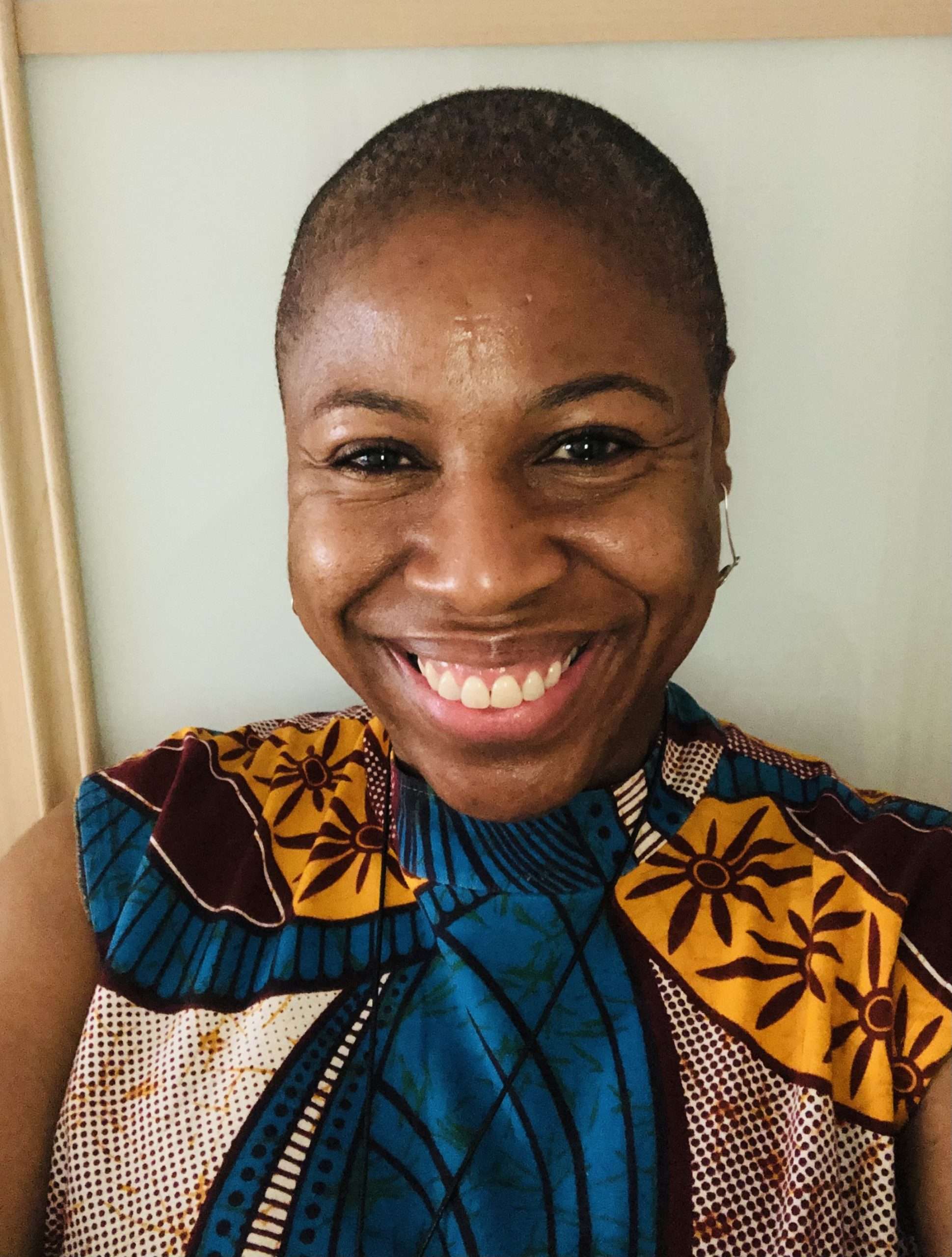
Divergence is celebrated and I’ve never experienced any kind of hierarchy or judgmental behaviours. I find connection, community and cor blimey, some fab conversation!
I would absolutely recommend it to other horror writers! It is SO much more than sword wielding grand quests that religiously follow the Hero’s Journey. There’s inspiration, scope for collaboration and opportunity to really nurture your creativity!
Benjamin Langley
Visit Ben’s website. Buy one of his horror-themed Lino prints here.
My work has been described as quiet horror with a creeping dread. I write across a range of sub genres including coming-of-age, supernatural, history, the occult, and folk horror.
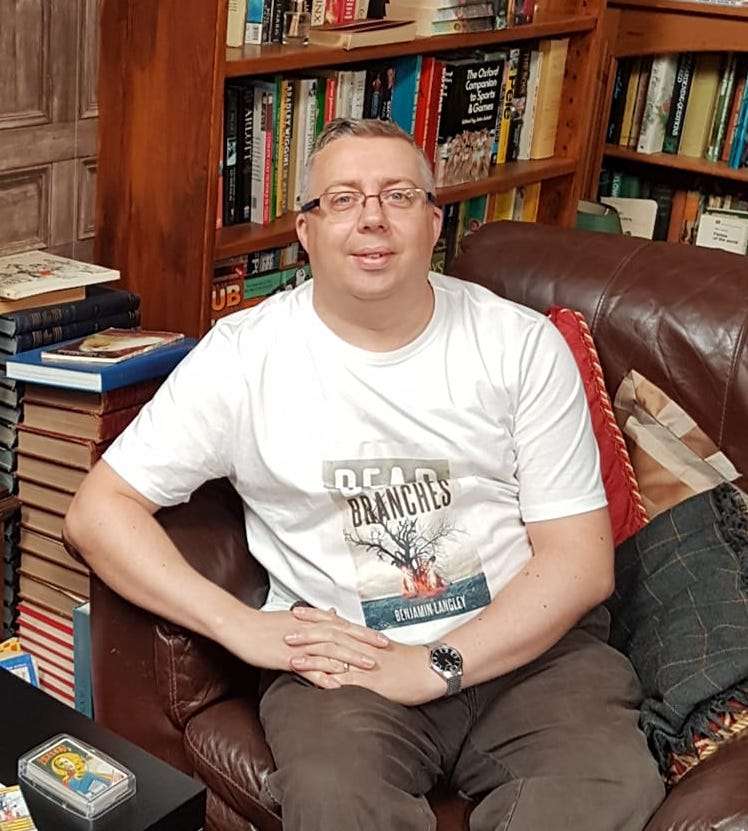
I primarily joined the British Fantasy Society because I’d heard about FantasyCon when looking for UK events to attend. Initially, I thought it wouldn’t be for me – expecting it to be exclusively for fantasy writers – only to learn that horror writers were well catered for.
I attended my first FantasyCon in 2022, and it was amazing. Almost every single time slot on the schedule has an opportunity to attend something horror based. Sometimes I was deliberating over a couple of options whether that be a book launch, an author reading, an interview or a panel. It also offered me the opportunity to appear on the schedule, so I’ve read alongside other writers I admire, appeared on panels and even moderated panels talking about subjects I love. Even more importantly, I’ve met so many other writers I now count among my friends.
There’s a huge community of people who love the genre and who love writing. As such they’re happy to share their knowledge. That has spread from the conventions into other meet ups and online workshops. I’ve experimented with other sub genres because of the knowledge I’ve taken from the community. The biggest problem is the huge number of book recommendations that have swollen my bookshelves!
There’s so much crossover in genres that a horror writer is going to benefit from the BFS. There are interviews with writers across genres who all shed some light on their craft. I’ve discovered writers who have taken me out of my comfort zone and made me find other ways to tell a story.
The horror community among the BFS are absolutely awesome. They’re so welcoming and I revel in every moment spent among them. It always reinvigorates my writing.
Joining the BFS was without doubt one of the best decisions I’ve made as a writer.
Neil Williamson
Visit Neil’s website. Current releases: Charlie Says, and the anthology of Scottish short fiction Gallus.
I love writing in all of the fantastical genres, so my style and tone vary according to genre and subject matter. But I grew up on a steady diet of supernatural stories, began my own career in the weird/slipstream horror-adjacent scene and have returned there with my most recent work. That style is more suggestive and unsettling rather than wading into the deeper waters of outright horror, I’d say.
Although I was already a member of the BSFA, I felt I was missing a connection to the horror side of things so I attended the one-day Fantasycon held at Champagne Charlies in 2001. In those days the BFS – having started out, of course, as British Weird Fantasy Society – was slanted towards the darker side of fantasy and horror and, as there was little overlap with the BSFA, I became a member of both.
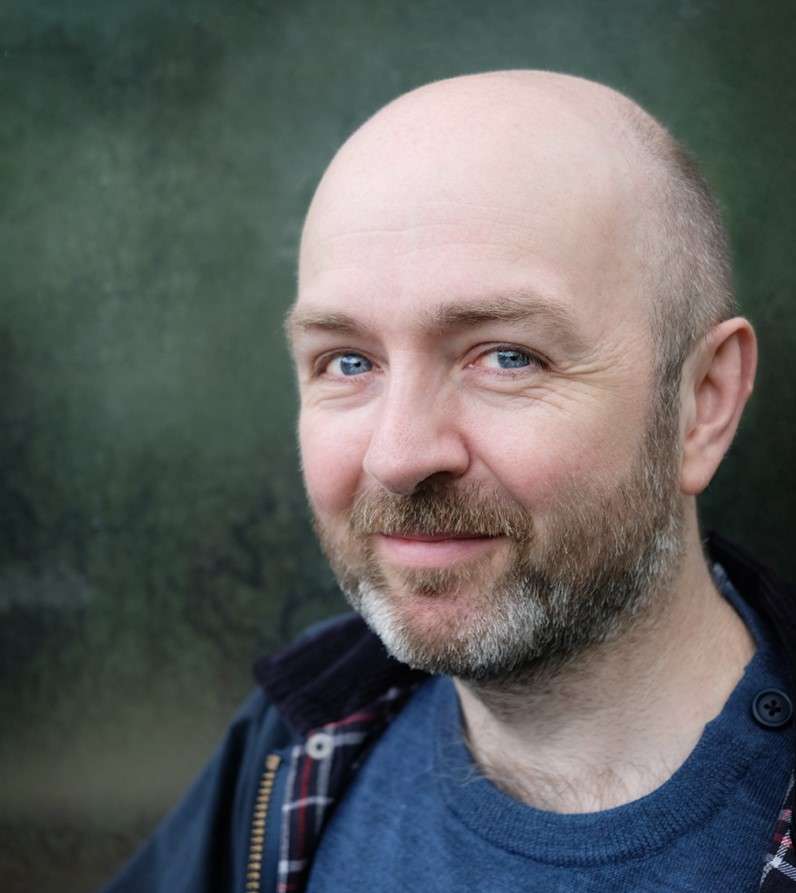
Community. Even though the BFS has spread its appeal widely across the fantastical genres over the last couple of decades, it still remains a conduit to discovering writers of horror, weird and dark fantasy, as well as specialist small presses. There are people and publishers I see only see at Fantasycon, and I value that that side of the genre is still a core function of the society.
The BFS has such a rich history in the horror field and it’s still one of the only places I know of to hang out specifically with other horror writers. I love that the society has opened its arms in recent years to fans and writers of all types of fantasy and, as a result become an increasingly diverse and inclusive environment. But it’s also great that the horror tribe were formed its core for so many years have remained a massive part of the BFS and look set to be so for years to com
Corinne Pollard
Visit Corinne’s Amazon page.
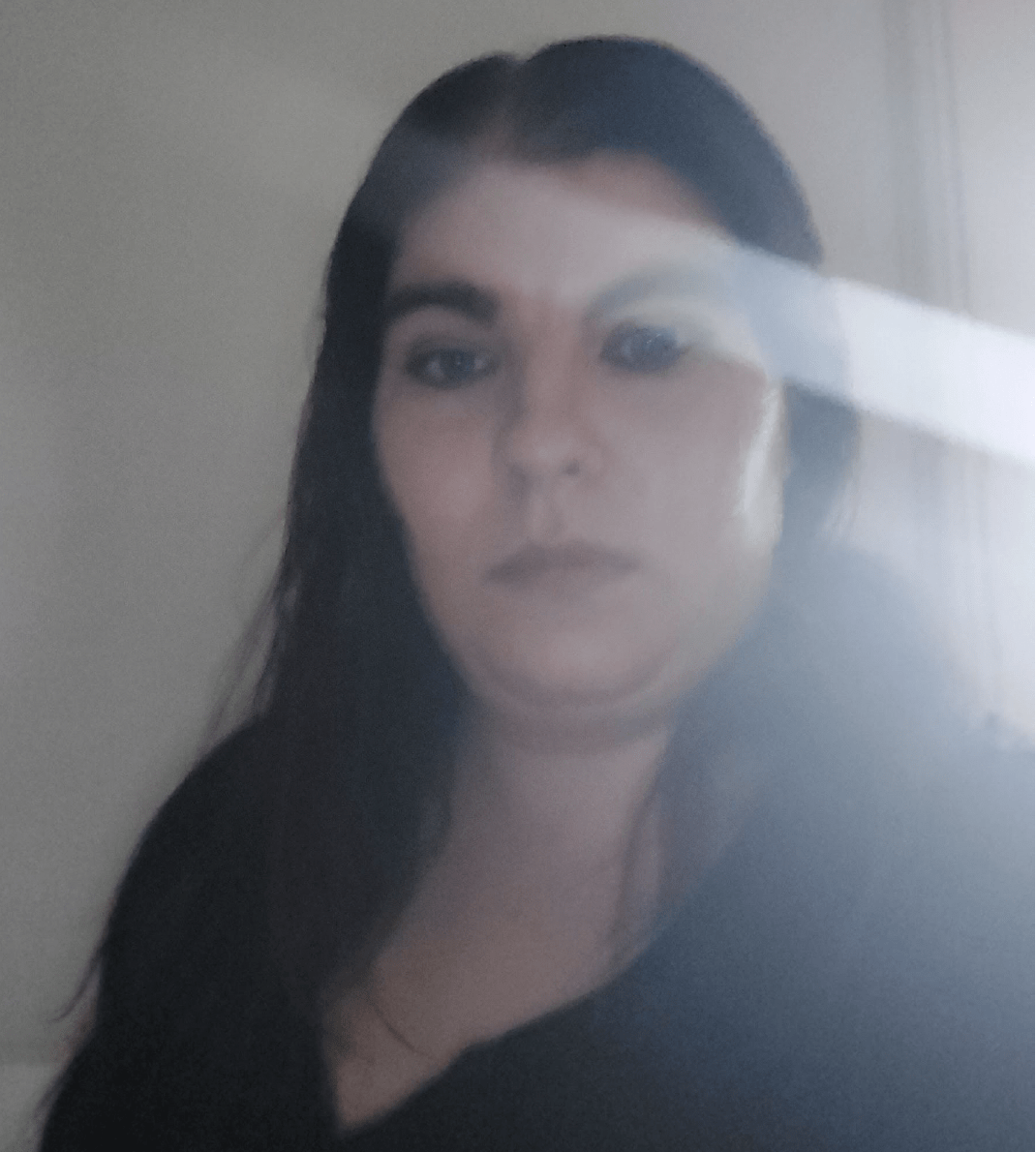
My writing goes to the darkside, and no, I don’t mean Star Wars. I love horror and focus mainly on these sub-genres: paranormal, monster, gothic, dark fantasy, vampire, werewolf, gore, ghosts, supernatural, and body horror. You may notice a strong emphasis on monsters/supernaturals, so you could say my work is weird horror, but not lovecraftian, and if so, this will have come from my love for Edgar Allan Poe. I write drabbles (100-word stories), short stories, flash, and poetry. My work explores horror, the supernatural, the darker side of fantasy, allowing our minds to dream which then changes to a nightmare, but it’s through this process that the reader can identify their fears. I write cos I too am afraid.
Truthfully, I joined the BFS because I saw that other horror writers had joined. I was like, why? It’s for fantasy and sci-fi writers, right? I was curious, so I read the webpage and discovered the shocking truth. Not only for horror writers, but the membership started as little as £20. Of course, I was going to sign up after that. Money is a constant barrier for me, especially for a writing society membership.
With membership I have access to writing opportunities, workshops, discounts, writing news and the indie writing community without the hassle of social media. I’ve taken part in the BFS awards on a judging panel and that was an amazing learning experience. The BFS certainly feels like a lovely community and because I’ve recently joined, I feel like I’ve only scratched the surface. I hope to expand and progress my writing and my role as a member.
I would recommend it one hundred percent if the horror writer also had an interest in fantasy or/and sci-fi. I think sometimes horror writers can get forgotten even in the BFS and usually Halloween is when we are remembered again. Also as I’ve said there are many sub-genres of Horror, so if the horror writer leans more to let’s say, slasher, then perhaps BFS isn’t for them. BUT what I think all writers need to remember is that you must not only read or stick to your sub-genre or genre if they wish to grow their craft. The BFS can be a gateway for this.
Horror can be seen with disdain as it is commonly under the assumption that it is all blood, gore, and jump scares, but the BFS are very welcoming and do not scorn the genre.
Dan Howarth
Visit Dan’s website. Current release: Last Night of Freedom.
I’m a horror writer at the heart of things, even if my books straddle crime/thriller/the weird. My work has a Northern bleakness to it, which is inspired by living up here, but also by writers who have influenced me such as David Peace, Benjamin Myers, and Gary McMahon.
I joined the BFS because I was looking to connect with other writers of horror and wider genre fiction. “Genre†is often a dirty word so I wanted to roll in the mire with others.
And I get many things out of it. A sense of community for starters. Recently at Fantasycon, it was great to be able to meet up with other writers, some of whom I’ve only known through Facebook etc. The BFS also have a bunch of interesting online events, usually theme focused and presented by experts in their field. Those are always worth a look.

I would absolutely recommend it to other horror writers. Not only is the Discord community absolutely thriving, a chance to connect with other writers is always to be encouraged. Not only that, but by mixing with writers of other genres, it allows you to pick up writing tips and book recs that you might not otherwise have come across.
Dan Hanly
Visit Dan’s website. Current release: The Great Leap.
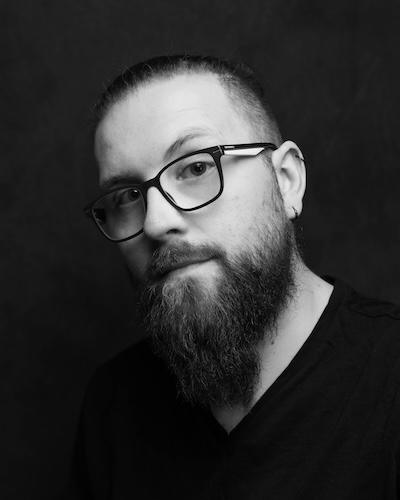
My writing usually exists on the fine line between Fantasy and Horror, often called Dark Fantasy; although that label seems inadequate to describe it. If you remove the Fantasy setting of my writing, it would be best marketed as a psychological horror.
Being an author, especially a self published one is a fairly lonely endeavour. Even if I personally knew a successful author or two, it’d be unlikely that that person would be comfortable discussing the type of topic that often comes up when being a dark fantasy author. I joined the BFS to gain peers with whom I share interests and passions, something that was sorely lacking.
The British Fantasy Society is a long running society that boasts authors, fans and professionals in all speculative fiction subgenres, including literary and genre fiction. This means that by joining, I immediately gained access to a wealth of knowledge and experience of my peers in the industry, workshops, conventions and presentations to help me refine my skills and make essential industry connections. Also, I gained access to passionate fans of all incarnations of speculative fiction to help enrich my experience as an author.
At Fantasycon, the BFS’s largest event year round, a significant portion of the programming and dealer space was dedicated to horror, and I met many authors and dedicated fans of the genre who are members of the society. Getting those peers and connections are essential components to being successful in such a personal and sometimes isolating industry.
Graeme Patrick
Visit Graeme’s YouTube channel, RPG Nook or the Ain’t Slayed Nobody Patreon.
The question ‘describe your writing’ always stumps me. I’ve spent years writing within the cosmic horror genre for an old-west comedy horror podcast, Ain’t Slayed Nobody. So, if you were to boil my feet and peel them like a blanched tomato to get to the meat of the answer, I’d probably say Cosmic Horror.
However! I have been cheating on it with more traditional and fantasy horror off and on for a year now. As for tone, I like to blend psychological horror and outright gore within character-driven stories, exploring broken people who find themselves in nightmares of their own making.
Then one day I found myself in Bedford, near Luton, which would send chills down anyone’s spine. I had agreed to run one of my Call of Cthulhu scenarios for some hapless victims at the Innsmouth Literature Festival. After they discovered they were the real monsters and dispatched accordingly, I decided to wander among the oddities and traders of ancient books. There, I found Lauren. We had a nice chat, and where I’d never really taken writing too seriously outside of RPGs and podcasts, I took a card. What would it hurt to have just a little peek?
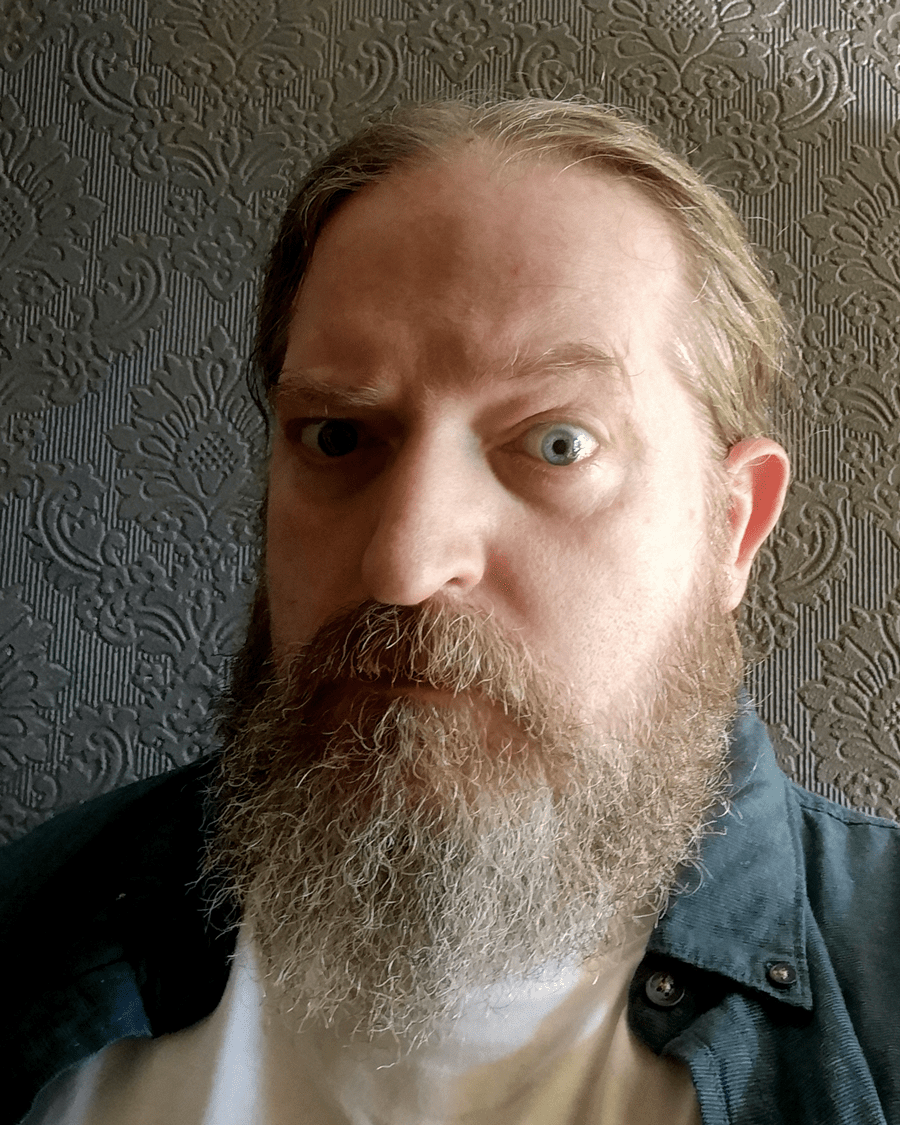
What do I get out of it? Well, I’ve always wanted to join a cult. But other than ticking that off my bucket list, horror can be so many things; at its fundamentals, it’s writing that evokes emotion. What emotions you pluck can affect your character’s whole arc. To best do that, I believe that talking to people who are outside of your wheelhouse is very important. Often, the best ideas come from influences that you’d never expect. Right now, I’ve got a thing for romances, or more accurately, watching them fall apart. Hopefully, that will become a tool for many stories down the line. On top of that, horror and fantasy are old friends. I firmly believe that true horror is rooted in awe and wonder, which are touchstones of the fantasy genre. We drift into thrillers and dark contemporary fiction without these veins running through horror. Where it is much more understandable, and understanding the monsters in the dark defangs them. I like horror to be uncanny, unnerving, and fantastical, allowing it to undermine the reader’s assumptions and the antagonist’s safety, creating an air of mystery and fear. For me, at least, if the reader comes away asking, “What the hell was that?” I’ve done my job. Fantasy is the right tool for me to inject that level of menace and distrust.
I would recommend it to other horror writers, too. They say that when you want to write a sci-fi movie, you write it as a Western. You look at it from the more grounded part of reality, so it focuses on the characters and isn’t caught up in the technology and babbling aliens of the genre. Writing horror is the same; you have to nail the basics down to the board, or they’ll squirm away, and you’ll become less relatable. Especially in genres like cosmic horror, as it deals with unknowable entities that humans cannot fathom and have dwelled within the darkness of space for eons… You can describe these existential horrors all day, but they won’t connect unless anchored. The Hebert Wests of the world gives us that connection. So, we need to write humans and their troubles, flaws, and feelings. Only then can we get to the gore with the reader fully invested as we pull the wings off their favourite characters. After that, sprinkling a bit of fantasy on top creates something more unique to juxtapose with humanity. After all what is cosmic horrors but sheer fantastical imagination, right? Feel free to add any final thoughts! I’ve only briefly been part of BFS, but I’ve enjoyed reading through Discord. The community is lovely! I hope to post more regularly, get involved, and pick people’s brains for juicy titbits.
Andy W Marsden
Visit Andy’s website.
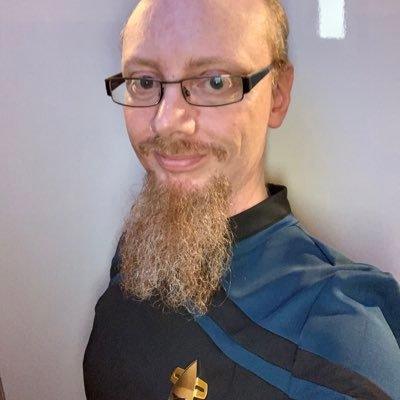
I’m Andy W Marsden, and I write horror. (I also dabble in SF-horror.) I first heard about the BFS at World Horror Con 2010 in Brighton, from Stephen Jones when he launched that year’s Mammoth Book of Best New Horror. I asked him his best advice for a newbie writer just starting out. “Join the BFS!†he cried, thrusting a leaflet in my hand; I joined straight after the con and never looked back!
The UK has an amazing plethora of talent in genre fiction, and I’ve made so many friends over the years, in fantasy and SF, and horror. It’s brilliant when everyone supports one another at book launches or signings or readings. I get to find new authors every year, which is always a bonus.
I would absolutely recommend the BFS to other horror writers. Just last weekend I was at Hull Horror Fest, talking with several self-published authors exhibiting there about the BFS, hoping to recruit some to our ranks (cue chants in the background of “One of us… one of us…!â€)
While fantasy and SF continue to hit the mainstream, horror tends to be the quieter, more hidden part of the genre. So being part of the BFS, meeting others who love reading and writing what I love, is truly special. You never feel alone in the BFS; there’s always another horror writer out there, lurking in the shadows, waiting to creep up on you and say hello!
Have we convinced you to join us, fellow child of the dark? Head over here to discover the benefits of joining, and then take the leap over here!

